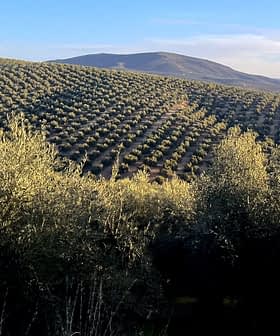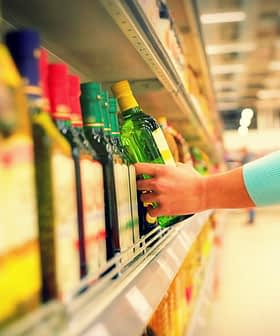Tunisia's Olive Oil Price Cap Gets Mixed Response from Consumers
The government capped the price of olive oil to keep household costs down, but locals question the efficacy of the plan.
 Tunis, Tunisia
Tunis, Tunisia  5.4K reads
5.4K readsThe Tunisian government implemented a price cap on domestic olive oil sales in December 2023 to address rising prices, but there is debate over its effectiveness. While some consumers are happy with the initiative, there are concerns about availability, quality, and potential negative impacts on olive oil producers due to the price control measures.
There is an active debate in Tunisia over the effectiveness of the government’s strategy to lower consumer prices more than a month after it announced a price cap on domestic olive oil sales.
In December 2023, the government capped the price of olive oil distributed by the National Olive Oil Office (ONH) at 15 dinars (€4.55) in local supermarkets due to concerns that prices were rising faster than household incomes. At the time, local olive oil prices at retail were expected to rise to 25 dinars (€7.40) per liter.
Local media sources noted that overall, customers were happy with the initiative in the context of the current economic crisis. For example, Tarek, a young cafe manager, said he was prepared “to buy a liter of olive oil for 15 dinars rather than for 24 or 25 dinars.”
See Also:Tour in Tunisia Explores Olive Oil Culture and CuisineHowever, there are some questions about the government’s media narrative, and not all feedback has been positive. On Facebook and other social media platforms, users noted that receiving “one and a half liters” of subsidized olive oil was not enough to make any real difference in household living costs. “How many Tunisians consume one and a half bottles of olive oil a year?” asked another social media user.
Close to 11 million liters of olive oil will be made available to Tunisian households. Moez Ben Amor, the commercial director of the ONH, said the supply will be sufficient to cover the needs of Tunisians.
Despite assurances, the plan has proven challenging to implement. For one, the government struggled to meet demand when the first stocks arrived in stores.
People posting online noted that they could not find the marked-down olive oil in their neighborhood supermarkets, with social media users such as Ben Youssef asking: “Where is it available?”
Media sources reported that the first bottles to arrive on the shelves were sold within a few hours. In response, Ben Amor called on consumers to avoid a frenzy. A similar rush was seen in stores in recent months due to the lack of milk, which was rationed to two packs per person, and sugar and coffee shortages.
There also appears to be a conflict between supermarket pricing above the cap and the government attempting to keep prices below the cap.
Olive Oil Times reviewed online supermarkets delivering groceries in Tunis, which has a metro area home to roughly a quarter of the population. Only one, Carrefour, sold extra virgin olive oil from the ONH priced at 15 dinars per liter. The ONH brand was unavailable in the other stores.
Branded olive oil sold per liter in Monoprix ranged from 20 to 36.8 (€5.92 to €10.89) dinars and 10.3 to 13 (€3.05 to €3.85) dinars for a 250-milliliter bottle. At Carrefour, a standard bottle of virgin olive oil was sold at 14 dinars (€4.14) per liter and 31.9 dinars (€9.44) at Maximarket per liter.
While speaking to a local radio station, a customer predicted that “people may take advantage of the scheme to make a profit. For example, farmers or resellers [could be more tempted] to mix and adulterate the oil to avoid losing money [from the price cap]. Setting such a price also has a negative impact on olive oil producers.”
Indeed, in early January, a team composed of local, regional and national authorities seized 1,420 liters of olive oil adulterated with other oils.
According to the World Bank, Tunisia’s persistent drought has left a dent in its economic prosperity, but measures such as price caps may exacerbate the problem.
The agricultural sector, in particular, has been hit the hardest, causing external financing challenges, increasing domestic debt and higher prices of staple goods. Inflation rose to 9 percent in September 2023, and emigration has become vital for Tunisians coping with economic hardships.
Although the government has intervened with measures to fix domestic prices, this “system of price control that regulates key staple markets is a key driver of the increasing indebtedness of state-owned enterprises as well as shortages,” according to the World Bank.
Customers on social media have asked for “a 30 percent reduction in all agricultural products,” including dates and fish, in the face of soaring food prices. Others noted that “the price of 10 dinars (€2.96) would have been more reasonable for Tunisians.”
Domestically, olive oil is a significant component of Tunisian cuisine. It is vital in varied meze dishes, stews and couscous, the national dish.
However, Tunisia’s olive oil production is export-oriented, and almost 80 percent of olive oil, equivalent to 195,000 tons in 2023, is destined for Spain and Italy, which has angered some social media users.
“Olive oil is a profitable business in Europe but a poor export commodity for Tunisia since we sell it cheaply in vats that are rebottled as a European product,” one wrote.
Outside the capital, the government has assured fair and even distribution across the country. In January, the regional director of commerce in the governorate of Kairouan, Adel Ben Helima, distributed 900 kilograms of bulk sugar and 900 liters of olive oil in the main commercial areas of Kairouan.
However, social media users remain skeptical and have pushed for more transparency, questioning whether the government is simply removing “old olive oil.” In response, Ben Amor specified that the oil is of superior quality from the 2023/24 crop year.
The measure is set to remain until Ramadan (April 2024), according to Houssem Eddine Touiti, the director general of competition and economic investigations at the Ministry of Commerce.
Share this article









